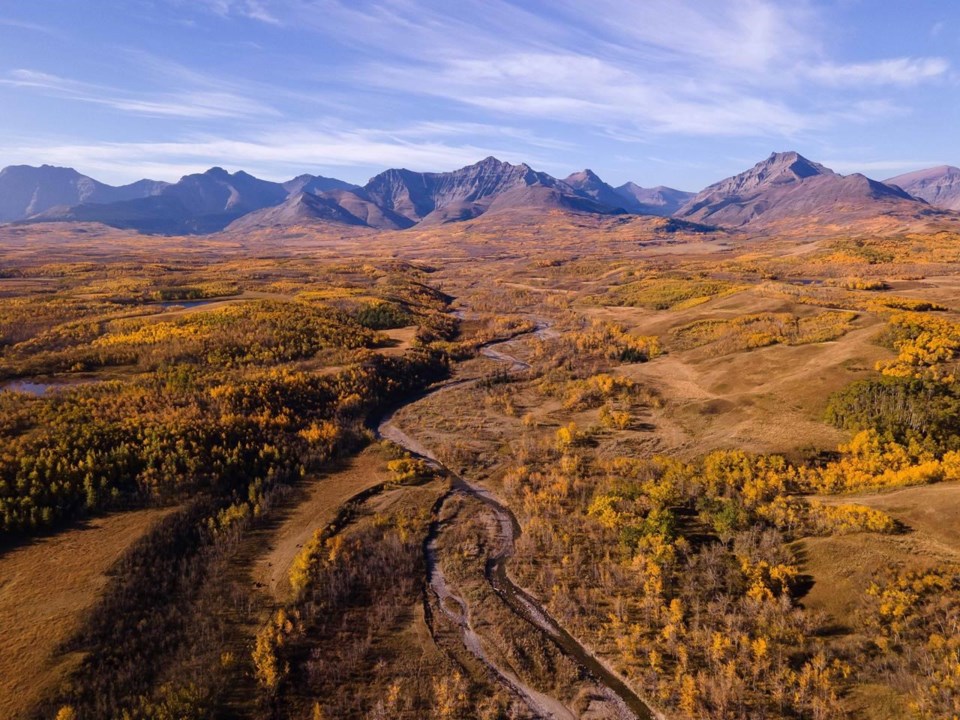TWIN BUTTE, Alta. ŌĆö The Nature Conservancy of Canada has announced a $6.9-million campaign to save a distinctive landscape near Waterton Lakes National Park in southern Alberta.
The 1,650-hectare property, called The Yarrow, is located near the hamlet of Twin Butte about 80 kilometres southwest of Lethbridge.
"It started with the vision of the Fischer-Cuthbertson family ŌĆö people who care deeply about the land," Catherine Grenier, president and CEO of the Nature Conservancy of Canada said during an online news conference Tuesday.┬Ā
"They've shown how ranching and conservation can work together to support communities, livelihood and nature at the same time."
The family said in a statement that their late father, Charlie Fischer, bought the property after he retired from the oil and gas industry in 2008.
"He never stopped being awed of what a beautiful place in Alberta it is," said the statement. "He took great interest in sustainable grazing and ensuring that his ranch was thoughtfully managed for nature."
The nature conservancy said the property features grasslands, wetlands, creeks, mixed forests, and includes 27 wildlife species of provincial and national significance ŌĆö such as grizzly bears, birds called bobolinks and little brown bats. There are also two streams, Yarrow Creek and Drywood Creek, that provide fish habitat and transport water from Alberta's southern headwaters to rivers across the Prairies that flow to Lake Winnipeg and eventually Hudson Bay.
"Knowing how special Charlie felt this location was, it is meaningful to our family to see our ranch being conserved by NCC in a way that sustains the land's natural beauty," the family said.
Both the federal and provincial governments, as well as Cenovus Energy and others, have also contributed money toward the $20-million project.
Grenier said the nature conservancy is about two-thirds of the way toward buying the property and they hope the fundraising campaign will raise the rest.
"Together, we now have the opportunity to make sure that this critically important landscape ŌĆö so full of life, so beautiful ŌĆö is conserved for generations to come," she said.
"By conserving this land together, we can ensure it continues to provide a refuge for wide-ranging mammals such as elk and cougar, as well as bobolinks and little brown bats. The Yarrow supports many more lives and livelihoods beyond its fence line. It stores carbon and it cleans the drinking water of the people downstream."
The land conservation project in Alberta comes a few weeks before the UN Biodiversity Conference in Montreal, where world leaders are gathering to determine a new set of goals to protect and restore nature.
It includes the conservation of at least 30 per cent of land and sea areas globally.
"NCC will be there," said Grenier. "We will be proud to show the world that we know how to deliver impact for nature. We will show them results like The Yarrow as an example of what we can do when we work together."
This report by The 91įŁ┤┤ Press was first published Oct. 25, 2022.
ŌĆö By Colette Derworiz in Calgary.
The 91įŁ┤┤ Press



